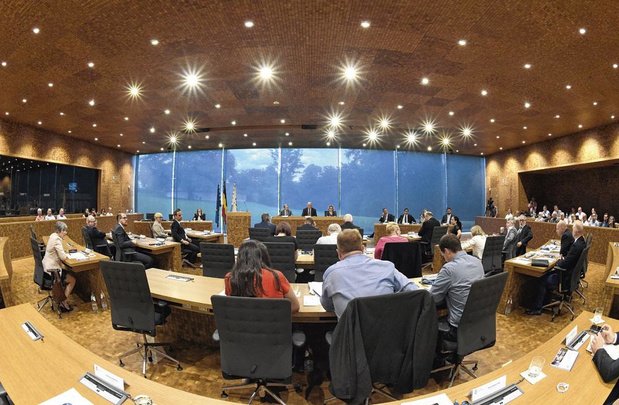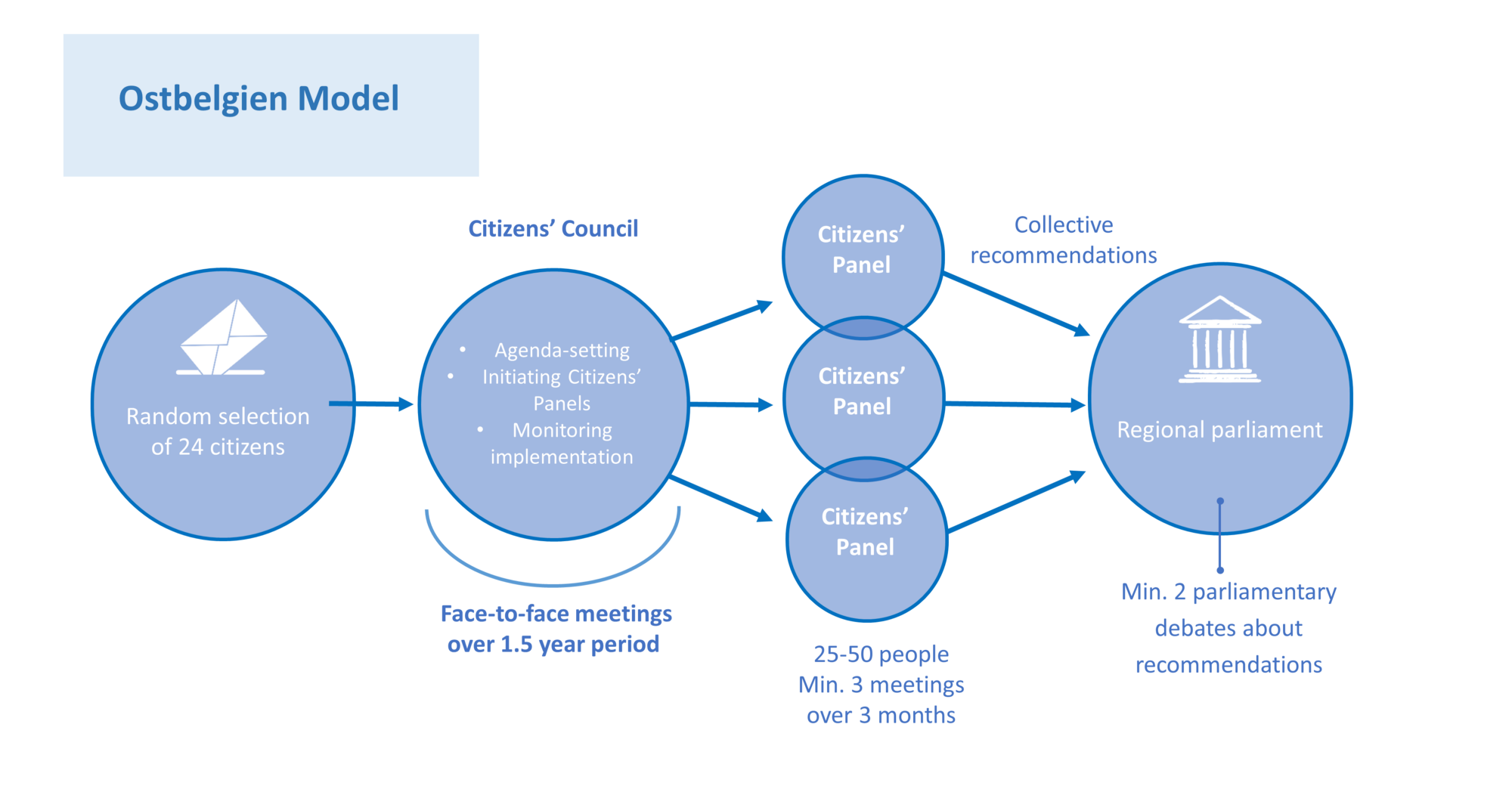Belgium
Deutschsprachige Gemeinschaft
16-09-2019
2019 - today
In 2019, a permanent Citizens' Council was established in Ostbelgien (German for Eastern Belgium, the German-speaking community of the country) to constitute the third fundamental democratic institution together with the Parliament and the Executive.
On 25th February 2019, the all parties in the parliament of Ostbelgien voted to establish a Citizens' Council and a Citizens' Assembly. Its main objectives are providing citizens not only a permanent voice in the process of decision making but also a systematic monitoring system to ensure the are heard. Ultimately, the project seeks to increase accountability and reinvigorate the agenda-setting power of common citizens.

Both bodies (the Citizens' Council and the Citizens' Assemblies) will be composed with the aim to represent the population in terms of gender, age, education and residence. Being Belgian national is not a requirement, so every inhabitant of the Ostbelgien region can be drafted, provided they are at least 16 years old and don't hold political office. Participation is not be compulsory, but those who do take part will have their costs covered plus a small per diem. Currently, date shows the intivation-acceptace rate is 10%, which is a high level for this type of experiences.
This mechanism (known as the "Ostbelgien Model") was designed with G1000, a platform for democratic innovation and representative deliverative democracy.
The model consists of a permanent institution (the Citizens' Council) and a temporary institution (Citizens' Assemblies or Citizens' Panel). The Citizens' Council (Bürgerrat in German) is composed of 24 people, who take the post for 18 months. This has two aims: avoid parliament-like long terms and give the opportunity to every Ostbelgian to take part in the institution.
Their two main jobs: setting the agenda and prepare the Citizens' Aseemblies (Bürgerversammlungen in German). This means they decide the topics to be treated but do not emit recommendations themselves. Instead, they make use of ad hoc deliverative processes: they determine the size and duration of a Citizens' Assembly on a specific topic (around 50 citizens drawn by lot working for three weekends over three or four months). The Assembly then issues recommendations to the parliament, which has to engage in debate with them. Later, the parliament, the government, the relevant commission and the responsible minister elaborate a due response.

Source: Innovative Citizen Participation and New Democratic Institutions
However, there is a big limitation: the outcomes of these assemblies are not legally binnding but mere recommendations, as as been explained above. The Belgian constitution grants all power to the the parliament, meaning that unless the constitution is changed and adapted to ensure a more citizen-led deliberative democracy, only non-binding recommendations can be issued. Morover, Ostbelgien is a small community; a minority in a small country. With its 80,000 inhabitants, it is arguably smallest region in the EU with own legislative powers. This means the model might face new obstacles if applied in a bigges scale.
Still, it is considered an advanced system of deliverative democracy in our days, and has been portrayed as an example for solving Europe's political and legitimacy crisis as whole. Furthermore, some experiences have already taken place at bigger scales than Ostbelbgien. In Belgium, deliberative democracy experiences ara taking place in Brussels and elsewhere. All over Europe, such initiatives are mushrooming: Ireland's citizens' assembies are the most paradigmatic case.
More information:
- G1000